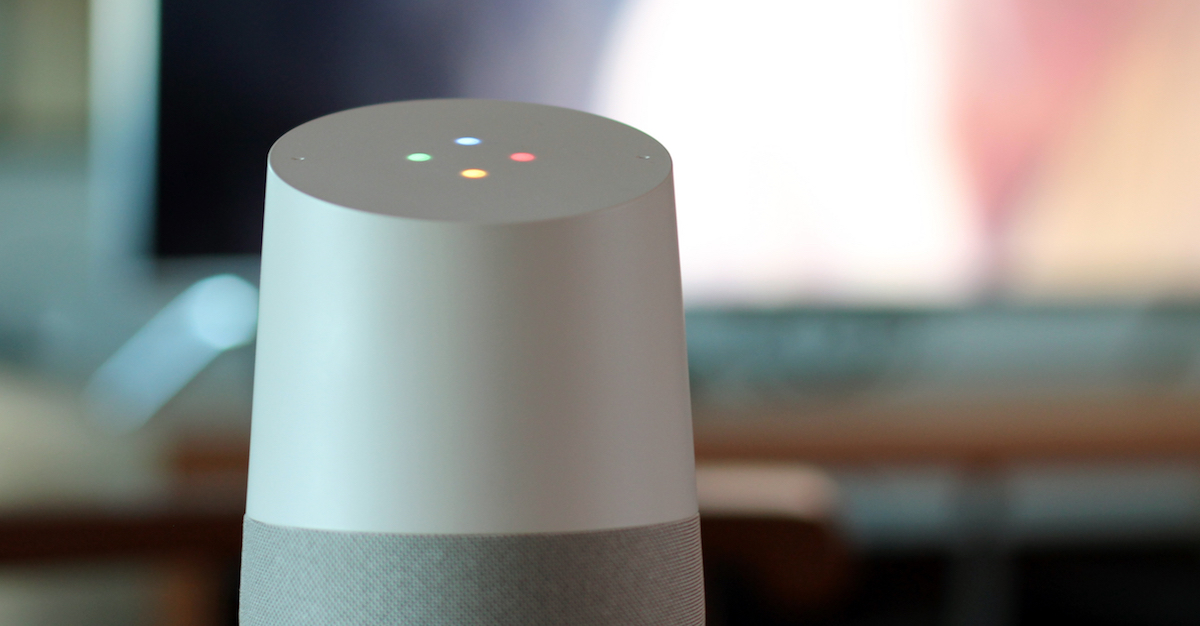Your daily round-up of some of the other stories in the news
Google Home can now identify who’s who
As part of its latest update, Google has rolled out multiple user support for Home.
Home’s in-built assistant can now learn the voices of up to six people, although not whilst they’re talking at once, thanks to neural network learning.
How to add extra users? Google explains:
When you connect your account on a Google Home, we ask you to say the phrases “Ok Google” and “Hey Google” two times each. Those phrases are then analyzed by a neural network, which can detect certain characteristics of a person’s voice. From that point on, any time you say “Ok Google” or “Hey Google” to your Google Home, the neural network will compare the sound of your voice to its previous analysis so it can understand if it’s you speaking or not. This comparison takes place only on your device, in a matter of milliseconds.
Sorry, Burger King!
China allegedly hacking South Korean missiles
The Wall Street Journal is reporting that South Korean missile defences are being targeted by hackers linked to China’s military and intelligence agencies. China’s Ministry of Defense maintains that it “has never supported any hacking activity.”
The country has apparently seen a “rise in the number and intensity of attacks” since it announced it was deploying the USA’s THAAD (Terminal High-Altitude Area Defense) system.
China is thought to oppose the deployment of THAAD because its radar is capable of seeing into Chinese territory from South Korea.
Harry Huskey dies, aged 101
Computer design trailblazer Harry Huskey died on 9 April 2017 at his home in California.
Aged 101, Dr Huskey was one of the last surviving members of the team at the University of Pennsylvania that created the pioneering Electronic Numerical Integrator and Computer (ENIAC) in the 1940s. ENIAC, which was 30 metres long and weighed 27 tonnes, is considered to be the world’s first general-purpose electronic digital computer.
Dr Huskey went on to work with mathematician Alan Turing on his prototype of the Automatic Computing Engine (Ace) in 1947 and later helped to set up computer science departments in universities around the world.

John C.
I have always thought of ENIAC as the first electronic digital computer, but I have never heard it called a “personal” computer. What does that term mean in this context?
Paul Ducklin
Oops. Changed from “first personal computer” to “first general-purpose electronic digital computer”.
As an aside, I added the epithet “general-purpose” so as not to invalidate the headline and the premise of this article:
https://nakedsecurity.sophos.com/2010/09/17/colossus-first-electronic-computer/
Strictly speaking, Colossus was programmable but not general-purpose (because it made more sense to tailor it to its specific purpose, namely helping to automate the cracking of Nazi messages encrypted using an Enigma cipher machine).